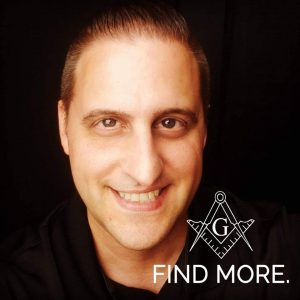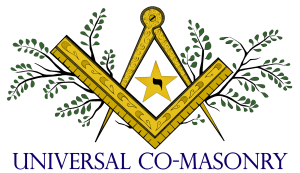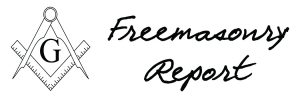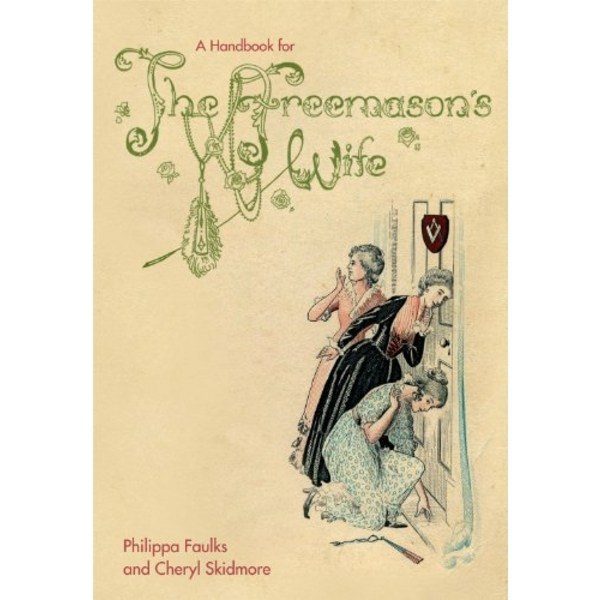
Is it Difficult to Become a Freemason in Florida?
The Freemasons are a brotherhood shrouded in urban legend, mystery, and falsely labeled a secret society. The truth is that the Masons are the oldest fraternal order in the world, with a global membership of over 2 million men. Past members have been some of the most influential men in history. Understandably, there is an interest in the requirements to become a Mason and the level of difficulty that entails.
To be initiated, you must first apply or petition for acceptance. Not everyone can be a Freemason, just as everyone cannot be admitted to Harvard, M.I.T., and any Ivy League School for that matter.
Understanding what is expected of a petitioner is an important first step. The quality of its members is much more important than quantity. By being consistently selective, members will be chosen who will further the purpose, practices, and philosophies of Masonic teachings. Although there are few requirements to apply for initiation, the prerequisites are specific.
Rigorous criteria are in place concerning the conduct and expectations of both applicants and members. There may be some matters that disqualify you from being accepted. As you continue to read, this article will cover the most important requirements and what would disqualify a petitioner in the state of Florida.
Requirement 1. He must be of good morals and reputation
Disqualifier: A felony conviction
Possessing an exemplary moral character and a good reputation are basic precepts of Freemasonry. Members and petitioners alike are expected to be upstanding citizens committed to following the law of the land.
According to The Grand Lodge of Florida Digest of Masonic Law 31.03, a lodge may not accept a petition from a person who has been convicted of a felony and whose civil rights have not
been fully restored. The Lodge may, however, receive a petition for Degrees if they have evidence that the petitioners’ civil rights were fully restored (1965 Proc. 196, 200).
To clarify the definition of a full restoration of civil rights, Chapter 31 page 252 proclaims the following, “Full” civil rights means without exception, for a man who has lost his civil rights and
then had them restored, the restoration must include all civil rights. This restoration, therefore, must include “the right to bear arms.” (2009 Proc. 120).
If you have been convicted of a felony, it doesn’t necessarily disqualify you from becoming a member of the Freemasons. You can apply for membership provided your civil rights have been
fully restored as defined above.
Most jurisdictions perform a mandatory criminal background check on each candidate to ensure that only those with the requisite attributes are permitted to join. It is necessary to deny membership to any man that could compromise the honorable standing of the Masons and to preserve the integrity and reputation of the organization.
A man convicted of a felony is thought to lack the moral character to join. He has already shown an unwillingness to abide by the laws of society, which would lead the fraternity to question his willingness to adhere to the rules of the organization. Becoming an initiate to the Freemasons isn’t intended to be easy or to cast a wide net to bring in as many members as possible regardless of their merit.
Membership is a privilege bestowed upon those men that embody the principles of Freemasonry and demonstrate good moral judgment. If you have any questions about how your background may affect your ability to become a member, please contact the Lodge directly to discuss your situation.
Requirement 2. He must believe in a supreme being and the immortality of the soul.
Disqualifier: Being an atheist or communist
No atheist can become a freemason. It is impossible to satisfy one of the central tenets of Freemasonry if you are unable to believe in the existence of God or a Superior being.
It doesn’t matter what name you call that being or what religion you are affiliated with so long as you believe that there is one supreme being. You don’t need to be a practitioner of any faith
whatsoever provided you hold a genuine belief in a God. Men of all faiths and philosophies are members.
In Florida, a Communist is also disqualified from becoming a member. According to The Grand Lodge of Florida Digest of Masonic Law 31.17 “ Since Communism does not have faith in Deity
and is contrary to all that principles and purposes of Freemasonry, it is unlawful for any Lodge in this Grand Jurisdiction to accept the petition for or confer any of the Degrees of Freemasonry
upon a Communist or upon anyone actively supporting the purposes thereof.
Rejecting a petitioner based on his support for communism has nothing to do with a political agenda. The Masons do not discuss politics, endorse candidates, and are intentionally
non-political. The dogma of communism is clear in that to be a true communist (think Marx, Lenin, and Engle) you must be an atheist. If a man cannot believe in a supreme being or God,
then he cannot, in honest sincerity, fulfill the most fundamental principle required of Masons.
Requirement 3. He must be at least 18 years of age and mentally competent.
Disqualifier: Underaged or not yet 18
You must be at least 18 years old in the state of Florida to become a member of the Masons. While you may deliver a petition before you reach the minimum age, you won’t be eligible for the
ballot until you’re 18.
The Grand Lodge of Florida Digest of Masonic Law states, “ A Lodge may receive a petition for the Degrees before the candidate is full 18 years of age, but the ballot must not be spread, or
the E.A. Degree conferred, before the 18th birthday.” (2008) 31.06.
The age of law varies from jurisdiction to jurisdiction and is set by the Grand Lodge of each state. Globally, ages range from 18 to 25. If you are not in Florida, please check with your
Lodge to get the correct information regarding the minimum age requirements.
There are several reasons for a minimum age stipulation. All explanations are based on the obligations of a Freemason. The petitioner must be mature enough to comprehend the gravity of
their decision and intellectually capable of adhering to the principles, tenants, and expectations of the craft.
The prerequisite that an applicant is mentally competent goes hand and hand with the age of law. A younger or less mature man may not fully understand his duties to God, the law, and
society. He may be incapable of fully grasping and retaining the knowledge and teachings of Masonic philosophies.
The Freemasons Repository Volume 21 page 353 asserts, “The applicant must have a sound mind, must be a thinking, reasoning man, not a ninny or a simpleton. If we have not a sound mind, it would be worse than useless to reveal to him the emblems, symbols, and secrets of Freemasonry.” This expression conveys why an applicant must be of a mature enough age to share in the wisdom and benefits of Masonry while also having the ability to exercise his discretion in matters that require secrecy.
Thanks again for reading – Is it Difficult to Become a Freemason in Florida? by the Freemasonry Report
 Requirement 4. He must be a freeborn man.
Requirement 4. He must be a freeborn man.
Disqualifier: Not a freeborn Man (Not a man, or not freeborn)
You must be a man to join the Freemasons.
Accepting only men into the fraternity has nothing to do with sexism. This mandate doesn’t imply that women cannot understand and appreciate the virtues of Masonic teachings. Quite simply, to honor the oath that all members take, only men can petition for initiation.
If you’re interested in joining an order that is open to all sexes, here are a few of the Florida affiliated organizations that do so, The Order of the Eastern Star, The Order of the Amaranth, and the Order of the White Shrine of Jerusalem. By clicking on the link, you’ll be taken to the corresponding page for that organization where you will find more information. The secondary part of the requirement that only a man may join is that he must also be freeborn.
Today, the question of a man being freeborn is largely a non-issue. This stipulation has been carried over from days past when it was not uncommon for a man to be a serf, slave, indentured servant, or under some form of bondage. All men today are considered freeborn, under the common presumption that he has mastery over his own choices and resources.
Just as the term “freeborn” has been defined for greater clarity, some jurisdictions have defined the word “man” for the same purpose. The Florida Grand Council provides the following explanation. Chapter 31 page 252 “ Just as a candidate for freemasonry must be a man, so it follows that to remain a Mason, he must not become a woman or portray himself as a woman, This portrayal may be by gender change, name change, identification, attire, or accouterment.” (2008 Proc. 106).
As linked above, there are several organizations affiliated with the Masons that women and possibly those that identify as women are welcome to join. For more information, please contact
these organizations in your area directly.
Requirement 5. He must seek admission of his own free will and accord.
Disqualifier: You were coerced into joining
If you’ve been coerced into joining the Freemasons by family, friends, or acquaintances, you should not petition for membership. Any petitioner must be sincerely interested in joining of his own free will and have a favorable view of the institution.
Masons will not have a membership drive or solicit members, this is prohibited as all applicants must inquire of their own accord. The decision to become a part of the Freemasons is an intensely personal one. Your motives for joining the Masons are an important factor in making that decision.
What do you hope to gain?
If you believe that membership will provide you with social or business advantages, you will be disappointed. If however, after familiarizing yourself as much as possible with the principles of
Masonry, you are convinced to take part in all it has to offer, you should move forward.
Freemasonry is about self-betterment as much as it is about the betterment of the community. Membership not only requires you to help others in need but to give of your time and charity not because you have to but because you genuinely believe in the merits of leaving the world a better place. As with anything else, you will get out of it what you put in. If you are willing to give of yourself in service to others and take advantage of the knowledge available to you, becoming a Freemason may be the perfect journey for you.
This quote from a reddit post summarizes the sentiment beautifully, “…. What we can do, however, is give men opportunity to change and improve themselves using moral tools and teachings in order to better implement the moral values they already had.
By doing this, a man not only changes himself, but the world immediately around him – and sometimes reaching even further than that. So, we can’t change the world on a macro scale, but we can change it many, many times on a micro scale. Masonry is an organized effort to save the world, one man at
a time. ”
So…..Is it Difficult to Become a Freemason?
That all depends on you. If you meet the requirements and value what membership entails, you will rise to the challenge.
If you’re interested, start here
The saying goes, “To be one, ask one”. Don’t be afraid to ask a Mason you know more about the fraternity. If you don’t know anyone that you can ask, simply look online for the Grand Lodge in your state to locate your nearest Lodge.
If you’re in Florida, look here.
Give them a call, send them an email or even stop by. Take your time finding the right Lodge for you and begin to familiarize yourself with it. Be aware of the residency requirements before you apply. Once you have become familiar with some of the members, you’ll need two to vouch for you to submit your petition. A Lodge representative will gladly help you find your way.
Thanks for reading – Is it Difficult to Become a Freemason in Florida? by the Freemasonry Report
Please keep up with the Freemasonry Report
The Freemasonry Report will be writing more articles to help grow the fraternity. The Freemasonry Report hopes this information was helpful to you. If you want more Freemasonry topics to read? The Freemasonry Report has good news – we have been busy creating plenty for you to enjoy! I have been spending hours creating this information, so take a moment to read each one! Or maybe you want to find a lodge in your neck of the woods?
More good news, the Freemasonry Report is creating a complete review of each Grand Lodge – it will take time but I wanted you to have this information at your fingertips! If you want to network with other Freemasons – check out our Facebook Group / Page now!

 The answer is No. No Grand Lodge requires a Freemason to grow a beard nor to be clean-shaven either. It appropriate to keep a beard neatly trimmed if a brother Freemason has a beard. Respectful attire and cleanliness are always appropriate when attending a Freemason Meeting. Only the Worshipful Master of a Masonic Lodge can require Lodge Officers to dress in a manner to which he is satisfied with.
The answer is No. No Grand Lodge requires a Freemason to grow a beard nor to be clean-shaven either. It appropriate to keep a beard neatly trimmed if a brother Freemason has a beard. Respectful attire and cleanliness are always appropriate when attending a Freemason Meeting. Only the Worshipful Master of a Masonic Lodge can require Lodge Officers to dress in a manner to which he is satisfied with.  What is an appropriate beard style for a Freemason Meeting?
What is an appropriate beard style for a Freemason Meeting?

 Can A Woman Be A Freemason?
Can A Woman Be A Freemason?
 The Women’s Grand Lodge Of Belgium is a Masonic obedience for women only which works in the first three degrees of Freemasonry. The Grande Loge Féminine de France founded its first lodge in Brussels on 20 April 1974, followed by three more in Liège, Brussels and Charleroi. The Women’s Grand Lodge Of Belgium was founded on 17 October 1981. The three Lodges created by the Women’s Grand Lodge of Belgium. This Grand Lodge hopes to one day form the Women’s Grand Lodge of the United States. These women’s lodges in the USA are as follows: Universalis in New York City; Aletheia in Los Angeles; & Emounah in Washington, DC. It is mentioned on the Alethia website that dues are $240 annually with initiation costs being $500.
The Women’s Grand Lodge Of Belgium is a Masonic obedience for women only which works in the first three degrees of Freemasonry. The Grande Loge Féminine de France founded its first lodge in Brussels on 20 April 1974, followed by three more in Liège, Brussels and Charleroi. The Women’s Grand Lodge Of Belgium was founded on 17 October 1981. The three Lodges created by the Women’s Grand Lodge of Belgium. This Grand Lodge hopes to one day form the Women’s Grand Lodge of the United States. These women’s lodges in the USA are as follows: Universalis in New York City; Aletheia in Los Angeles; & Emounah in Washington, DC. It is mentioned on the Alethia website that dues are $240 annually with initiation costs being $500.